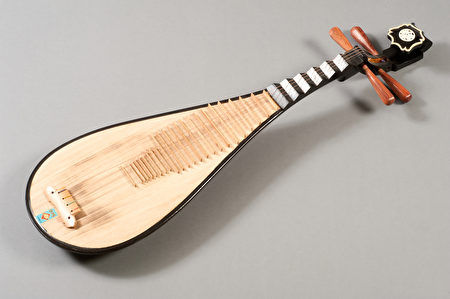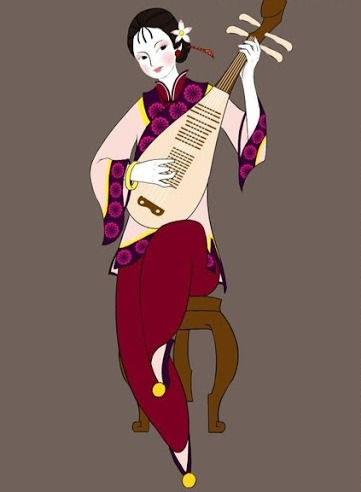Traditional Chinese Instruments - Pipa 琵琶
- tuj62984
- Mar 16, 2021
- 1 min read

The pipa (琵琶) is a four-stringed Chinese musical instrument, belonging to the plucked category of instruments. Sometimes called the "Chinese lute“, the instrument has a pear-shaped wooden body with a varying number of frets ranging from 12 to 31. The pipa is one of the most popular Chinese instruments and has been played for almost two thousand years in China.

The pipa is mentioned frequently in Tang Dynasty poetry, where it is often praised for its expressiveness, refinement, and delicacy of tone, with poems dedicated to well-known players describing their performances。
A famous poem by Bai Juyi, "Pipa xing" (琵琶行), contains a description of a pipa performance during a chance encounter with a female pipa player on the Yangtze River:
大絃嘈嘈如急雨
小絃切切如私語
嘈嘈切切錯雜彈
大珠小珠落玉盤
Thick strings clatter like splattering rain,
Fine strings murmur like whispered words,
Clattering and murmuring, meshing jumbled sounds,
Like pearls, big and small, falling on a platter of jade.
Appreciating the Pipa Music "Xulai"
.jpg)
Comments